Most Versatile Musical Instruments

It has a wide range of tones, from high to low, you can play melody, rhythm or both at the same time. You can play all styles of music, from classical, country, jazz, blues, pop, rock to heavy metal and many more! You have a wide range of techniques to use and you can play classical etudes and heavy metal solos and latin music, etc... and it has a rich sound. You can even play on your own and make it sound like there are two or three guitars.
For the piano it could be said the same, but I go for guitar because you can take it wherever you want to go and jam with it no matter with whom or in what place, while piano you really can't bring anywhere with you if that place does not provide you with another piano to play on. So I say guitar!
 The piano is a musical instrument played using a keyboard, which is a row of keys that the performer presses down or strikes with the fingers and thumbs of both hands.
The piano is a musical instrument played using a keyboard, which is a row of keys that the performer presses down or strikes with the fingers and thumbs of both hands. No offense to guitarists, but... any melody, any chord, anything you play on a guitar, you can play on a piano. The same applies for almost ANY instrument. Sure, it doesn't have the twang of a guitar, the soaring air of a violin, or the sexiness of a saxophone, but this list is for most versatile, not best-sounding!
I'v found that I can play almost any song on the piano and although it may not sound exactly the same as the correct instruments used, it still sounds amazing. It is definitely one of, if not, the most versatile instrument out there, the guitar being a very close match.
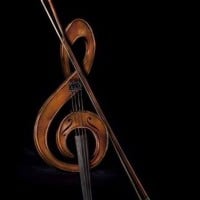 The violin is a wooden string instrument in the violin family. It is the smallest and highest-pitched instrument in the family in regular use.
The violin is a wooden string instrument in the violin family. It is the smallest and highest-pitched instrument in the family in regular use. I think we need to be reminded that Western music is not the only kind of music out there. While the violin may have extreme prominence in Western music, it is also a central instrument in other parts of the world, such as India. the Middle East, and even China to an extent.
I have heard more and more uses of the violin in pop and rock music. It has been use by iconic bands such as pink floyd. Lindsay Sterling is a classically trained violinist who has also been playing more contemporary pieces like dubstep.
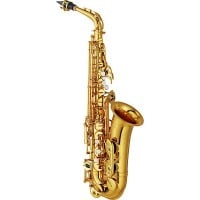 The saxophone is a family of woodwind instruments. Saxophones are usually made of brass and played with a single-reed mouthpiece similar to that of the clarinet.
The saxophone is a family of woodwind instruments. Saxophones are usually made of brass and played with a single-reed mouthpiece similar to that of the clarinet. Can be played in many different genres along with different styles
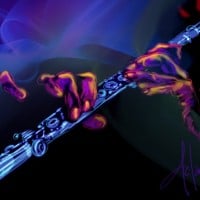 The flute is a family of musical instruments in the woodwind group. Unlike woodwind instruments with reeds, a flute is an aerophone or reedless wind instrument that produces its sound from the flow of air across an opening.
The flute is a family of musical instruments in the woodwind group. Unlike woodwind instruments with reeds, a flute is an aerophone or reedless wind instrument that produces its sound from the flow of air across an opening. The most portable instrument. I can disassemble my irish flute in three parts, the longest section measuring just 25cm. It fits anywhere: you can carry it to the park when you go for a walk, or take it to a trip abroad. If you like the idea of being able to play anywhere, the flute is your friend. :)
I like the simplest flutes, without any mechanical parts, just your fingers on the holes. With a flute you can produce infinite notes, unlike with instruments like the piano. It's also very low maintenance, if any maintenance is needed, depending on the material.
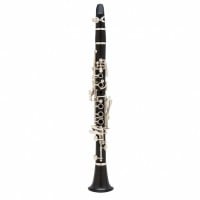
I think clarinets are extremely versatile! We may not have the vast amount of classical repertoire such as the piano, violin, or cello, but we do have a great variety of repertoire outside of classical, such as jazz, samba, rock, pop, concert band, marching band, T.V. and film scores. Besides, again while not having as much as piano, violin, or cello, we in general have quite a large amount of classical rep, that is in particular, extremely beautiful and very well known! :D
Wide range of notes, highly expressive, and easily transportable. Very classy looking yet affordable student versions are available too. Not only can it be used in any genre, but the tone will be welcomed, and will carry through whatever other instruments are there.
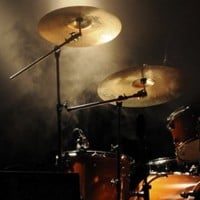
As far as versatility, percussion is by far the only one I can think of that truly can be played across all genres. Rock, pop, hip hop, orchestral, concert and marching band, jazz... There may be other instruments that CAN play all of these, but percussion is the only one that is NECESSARY in all genres. Piano comes pretty close, but even it doesn't belong in a symphonic band and though they use keyboards in marching band, it isn't an absolute necessity. There are other instruments I like to listen to more, depending on the style of music, but there is absolutely no question that percussion is the most versatile instrument.
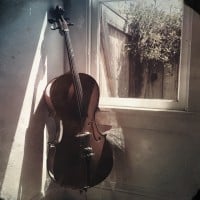 The cello or violoncello is a bowed or plucked string instrument with four strings tuned in perfect fifths.
The cello or violoncello is a bowed or plucked string instrument with four strings tuned in perfect fifths.
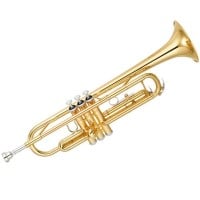 A trumpet is a blown musical instrument commonly used in classical and jazz ensembles. The trumpet group contains the instruments with the highest register in the brass family.
A trumpet is a blown musical instrument commonly used in classical and jazz ensembles. The trumpet group contains the instruments with the highest register in the brass family. The range of emotions a good trumpeter can bring to fruition outstrips probably any other wind instrument. It's ability to seamlessly transition from raw power to muted sorrow puts this one up behind piano.
Not only is it versatile and used in many genres, it is prominent in many genres. Jazz, blues, symphonic, orchestral, chamber, and marching.
Concert, jazz, rock (haven't you seen the half time show? ) Blues, spymphanic. It sounds great too.
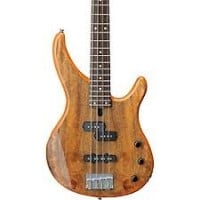
Take away the bass from any song of any genre what are you left with? An empty sounding song with no heart and soul. Sometimes you are left with absolutely nothing. It's the foundation for any great song.
Take away the bass from a song and what are you left with? An empty sounding song with no heart or anything driving it along. It's the foundation for any song
Once a musician said, "It's like a layer of all instruments". But its more than that.
The only thing the human voice cannot do is chords, other than that it can do everything. And it is certainly the most versatile when it comes to timbre.
I think voice is the easiest way to produce melody and rhythm, with accompanying lyrics..
Can be used to harmonize, with even small percussion instruments.

I can kind of understand that some people wouldn't want to count synthesizers given that they don't make sound the same way as other instruments. However in the variety that it can produce the synth is ahead of any conventional instrument.
Can emulate and faithfully recreate virtually all of the instruments out of this list... And create lots and lots of new, previously unheard sounds. Sonic capabilities of the synthesizer are endless.
Combine theory and pracitice from playing the piano, and knowledge in sound engineering and you got arguably one of the most versatile instruments in our modern world.
With a synth, the sky and your own creativity is the limit.
 Accordions are a family of box-shaped musical instruments of the bellows-driven free-reed aerophone type, colloquially referred to as a squeezebox.
Accordions are a family of box-shaped musical instruments of the bellows-driven free-reed aerophone type, colloquially referred to as a squeezebox. Just listen to all the things Weird Al Yankovik can do with it.
And that kid who played Vivali's Summer.
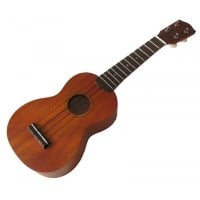 The ukulele is a member of the lute family of instruments; it generally employs four nylon or gut strings or four courses of strings.
The ukulele is a member of the lute family of instruments; it generally employs four nylon or gut strings or four courses of strings. This instrument is more versatile than a clarinet, in that it can sound chords. A
clarinet represents a cat. Cats are more likely to be evil, than dogs.
An underrated instrument that is second only to the guitar in versatility. The one thing that the Uke has over the guitar is its greater degree of portability. If I were backpacking anywhere in the world. I would carry my Uke in comfort and ease. The guitar would be waiting for me when I arrived back home.
It is hugely under used when instruments like saxophones that sound as a cat has had its tail stood on are favoured.
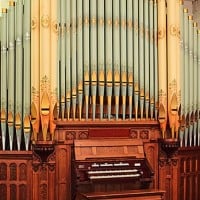
Be it church, theater or electronic organ, this instrument is definitely the most versatile instrument!
It has the widest range all instrument (sorry, pianists), and has an enormous variety of registers (flutes, trumpets, oboes, strings, clarinets, along with some exclusive sounds like celeste and organs' principals - even human voice is present! ) that can stack in every possible way (which synths can't do do at all), making it basically a one-instrument orchestra. By combining these, you can have loud, full sounds or very soft voices; you can also play several notes by pressing a single key (if you press C3, you can hear C1, C2, C3, C4, G4,C5, E5, G5, all at the same time).
A good organists can play up to 6 voices at once, using the pedalboard, but it is also used as accompaniment instrument (every note can be sustained indefinitely, which makes it perfect for voice accompaniment, either solo or in choir) or as melody+accompaniment. And even if you say that a piano does that too, try making the melody have a different timbre than the chords. Well, if an organ has two keyboards or split keyboard, that's totally possible and common.
Also, virtually any piece of music, classical or popular, can be reduced to organ and remain better preserved than in a piano (excepting maybe some piano songs). Some theater organs have even percussions to complete the band!
So, organ is not only the biggest and most complex acoustic instrument, worth the surname "King of instruments", but also the most versatile.

I've played trombone in marching band, classical beand, jazz band, orchestra, show choir band, and even a ROCK BAND. I've never played something that doesn't sound good on a trombone.
Jazz, pop, rock, concert band, pep band, marching band, ballads, epic backgrounds to movies, Trombone has it all. including Glissing! )
It should be number 1 because you can use it to travel through time, teleport to places, change the time of day, and summon storms.
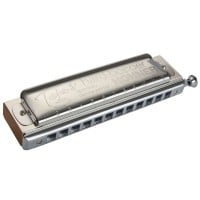 The harmonica, also known as a French harp or mouth organ, is a free reed brass instrument used worldwide in many musical genres, notably in blues.
The harmonica, also known as a French harp or mouth organ, is a free reed brass instrument used worldwide in many musical genres, notably in blues. Very lightweight, portable, and cheap, the harmonica is used in many genres such as blues, jazz, rock, pop, classical, folk, country, etc. It may not be as versatile/popular as the guitar, drums, or piano, but aside from that I believe it beats almost all the other entries on this list.
Harmonica is like a clarinet flute accordion and some tones of trumpet and violin. Is mega portable and cheap. And has a lot of feeling.
Number one for me
This is underrated. It might seem like a poor mans' instrument, but harmonicas sound more notes, at one time.
The French Horn has a wide range that it can play within and can also play with a large range in tone, from mellow to bright. Even by itself the horn is great to listen to, but a group of horns could cover many of the parts of a musical arrangement. The French Horn also requires a lot of skill to play. The partials are close together, requiring a lot of accuracy in air and embouchure. The player also has to be able to play very low notes despite the small diameter of the mouthpiece. The only thing that hinders the versatility of the horn is it's portability. But other than that, it is in my opinion the most versatile.
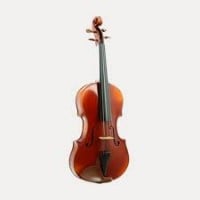
This is underrated. It is both a violin, a & cello.
Looks like many commenters mix up versatility and importance
Anyway
Years of playing the bassoon in an orchestra showed me that it can be used for many different tasks: playing solo, supporting the solo, bass, or a mixture of these
Furthermore it is suited for solo pieces, accompanied solo, chamber music and orchestra
I play the euphonium. In each piece our Wind Ensemble plays, my part is a combination of everything from low brass, to trumpets, and even flutes. I also find my self playing notes several lines above and below the scales. The euphonium is my favorite instrument because of its warm sound and versatility.
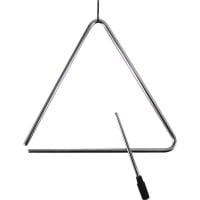
There are many ways of playing the upright bass. Between bowing and plucking, it can sound amazing with almost any song.